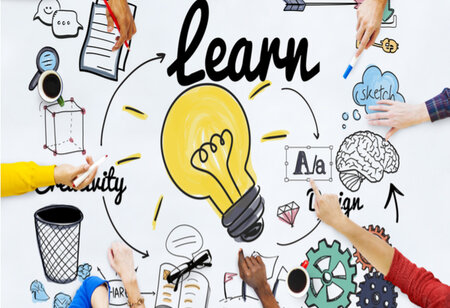Experiential Learning, the Way to Move Forward in Engineering Education
 With more than 4300 colleges, engineering is one of the most popular and in-demand higher education streams in India. Even with that being the case, a NASSCOM study conducted a couple of years ago found that out of the 15 lakh engineering graduates who pass out each year, only 2.5 lakh gets employed in core engineering industries. And in 2022, another study found that only 55 percent engineering graduates are employable which highlights the lack of quality in engineering education in the country. In this scenario, experiential learning or learning through experience is a great tool that educators can leverage to not only increase the employability of Indian engineering graduates but also to establish a strong teaching learning culture within campuses. Let’s analyze how experiential learning can help engineering institutions to bridge the industry-academia gap and make students job-ready.
With more than 4300 colleges, engineering is one of the most popular and in-demand higher education streams in India. Even with that being the case, a NASSCOM study conducted a couple of years ago found that out of the 15 lakh engineering graduates who pass out each year, only 2.5 lakh gets employed in core engineering industries. And in 2022, another study found that only 55 percent engineering graduates are employable which highlights the lack of quality in engineering education in the country. In this scenario, experiential learning or learning through experience is a great tool that educators can leverage to not only increase the employability of Indian engineering graduates but also to establish a strong teaching learning culture within campuses. Let’s analyze how experiential learning can help engineering institutions to bridge the industry-academia gap and make students job-ready.
Making Learning More Engaging
Student engagement plays a crucial role when it comes to determining the success and failure of a teaching program. While following conventional teaching methods of teaching, educators more than often are failing to make their classes more engaging. This is where experiential learning comes into play and being a student-centric and experience-driven educational model, experiential learning is able to bring back the attention of students into the class. And by doing so, learner engagement will improve which will make the class much more effective.
A great example of using experiential learning to make the classes more engaging is Thapar Institute of Engineering and Technology, Punjab. The institute has set up an experiential learning center for students from different engineering streams and here, students and teachers work together on real-world challenges. And by doing so, the institute imparts theoretical concepts to their learners which are later applied in formulating solutions for sophisticated engineering problems. After its introduction, the experiential learning center has been able to bring the teachers and students of Thapar Institute of Engineering and Technology together to create a better outcome-based learning system that improves the critical thinking and problem-solving capabilities of the students.
Equipping the Students
The lack of practical training is one of the primary reasons why students struggle to cope-up with the pressures of real-world challenges. At a time when engineering institutions are struggling to incorporate practical-oriented learning methodologies into their curriculum, experiential learning allows students to learn from their own experiences. And by using experiential learning, educators will be able to provide better hands-on training, improve the students’ creativity and help them learn from their mistakes.
Through experiential learning, Oregon State University in USA, takes the learners beyond conventional classroom education. By educating the students on relevant concepts and then by putting these concepts into practice, the institute is able to impart crucial practical education to their learners. Oregon State University has structured experiential learning in such a way that from undergraduate research to student club honor thesis, and student projects, the learners will have to use the concepts they have learned, in real-life scenarios. And this training has helped their students to not only get better practical exposure but it has also helped the students to grasp concepts in a much better way.
Better Employability
By creating an engaging learning environment and by allowing the students to apply the concepts they have learned in real-world situations, experiential learning will help engineering institutes to create a skilled workforce who is capable of meeting industry requirements. And this can make a drastic improvement in the placement scenario of engineering students in India where currently, nearly half of the students who graduate find it hard to get a job.
GLA University from UP has received 1800 plus recruitment offers from more than 400 top-tier companies including Amazon, Microsoft, Capgemini, VMware, and Disney Hotstar for their students. What gives them an edge over many other engineering colleges in India is the fact that they encourage the practice of experiential learning. And through experiential learning, the university is able to ensure outcome-based ‘beyond the classroom’ learning which, in turn, has helped them to nurture industry-ready students.
Rising Experiential Learning Providers
Owing to the rising importance of experiential learning, many new experiential learning platforms and companies have entered the market. Sapientury is one such unique startup that aspires to instill engineering mindset in students and through experiential learning they are aiming to develop capable engineers who are passionate about engineering. In order to realize this objective, they offer application-centric projects and courses along with D-I-Y kits that will provide better hands-on experience to their learners.
According to the famous educational theorist David Kolb, experiential learning can be defined as "The process whereby knowledge is created through the transformation of experience. Knowledge results from the combinations of grasping and transforming the experience." And at present, this method of knowledge acquisition is one of the most effective ways to educate the learners while at the same time ensure that they are prepared for the industry.

